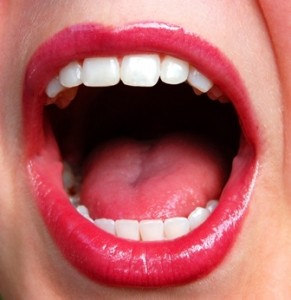 Did you know that the month of March is National Nutrition Month as designated by The Academy of Nutrition and Dietetics? Everyone knows that diet and nutrition are critical to general health. The fact of the matter is, however, your oral health is equally dependent on and affected by nutrition. Of course there are foods to limit for the sake of your oral health, like those that are loaded with sugar or highly acidic. But there are also foods, specifically certain fruits and vegetables, which are good for your teeth and gums. And with National Nutrition Month upon us, this seems like the time to offer worthwhile tips for your oral health.
Did you know that the month of March is National Nutrition Month as designated by The Academy of Nutrition and Dietetics? Everyone knows that diet and nutrition are critical to general health. The fact of the matter is, however, your oral health is equally dependent on and affected by nutrition. Of course there are foods to limit for the sake of your oral health, like those that are loaded with sugar or highly acidic. But there are also foods, specifically certain fruits and vegetables, which are good for your teeth and gums. And with National Nutrition Month upon us, this seems like the time to offer worthwhile tips for your oral health.
Citrus Fruits
Citrus fruits, such as oranges, pineapples and tomatoes, are chock full of vitamin C, which is critical for the health of your gums. Without enough vitamin C, gums might become unhealthy and even bleed, an early sign of gum disease. Eventually, unhealthy gums may lead to tooth loss, so be sure to include lots of fresh citrus fruits for healthy gums and stable teeth.
Fiber Rich Fruits
When you chew fruits that are high in fiber, salivation increases to help wash away food debris and bacteria that can be harmful to teeth and gums. Some of these fresh fruits are apples, oranges, pears, and watermelons. This increase in saliva reduces the acid level in your mouth and helps avert dry mouth, which makes teeth more vulnerable to decay. In addition, as you chew fiber-rich fruits, you’re also massaging your gums.
Hard Vegetables Build Strong Teeth
Eating hard and fibrous vegetables, such as carrots and celery, provide your body with a good source of beta carotene. Your body needs beta carotene to make vitamin A, which is a nutrient that is vital to building strong teeth. These and other hard vegetables also massage your gums as you chew. And the water content in these vegetables cleans your teeth and gums.
Onions
Onions are great for your oral health, because they contain antibacterial sulfur compounds. These antibacterial compounds help kill the bacteria that can lead to tooth decay and gum disease. And, of course, they are strongest when eaten fresh and uncooked, so be sure to brush your teeth or rinse with a refreshing mouthwash after boosting your oral health with onions!
So, here’s to your health… your oral health!
 The health benefits of weight loss are many. Being overweight can contribute to heart disease, heart attack, joint pain, and diabetes. And now, research shows that being overweight can put you at risk for another type of health problem: gum disease. You may not connect your weight with your oral health, but the truth is that your smile can benefit from you maintaining a healthy weight.
The health benefits of weight loss are many. Being overweight can contribute to heart disease, heart attack, joint pain, and diabetes. And now, research shows that being overweight can put you at risk for another type of health problem: gum disease. You may not connect your weight with your oral health, but the truth is that your smile can benefit from you maintaining a healthy weight.